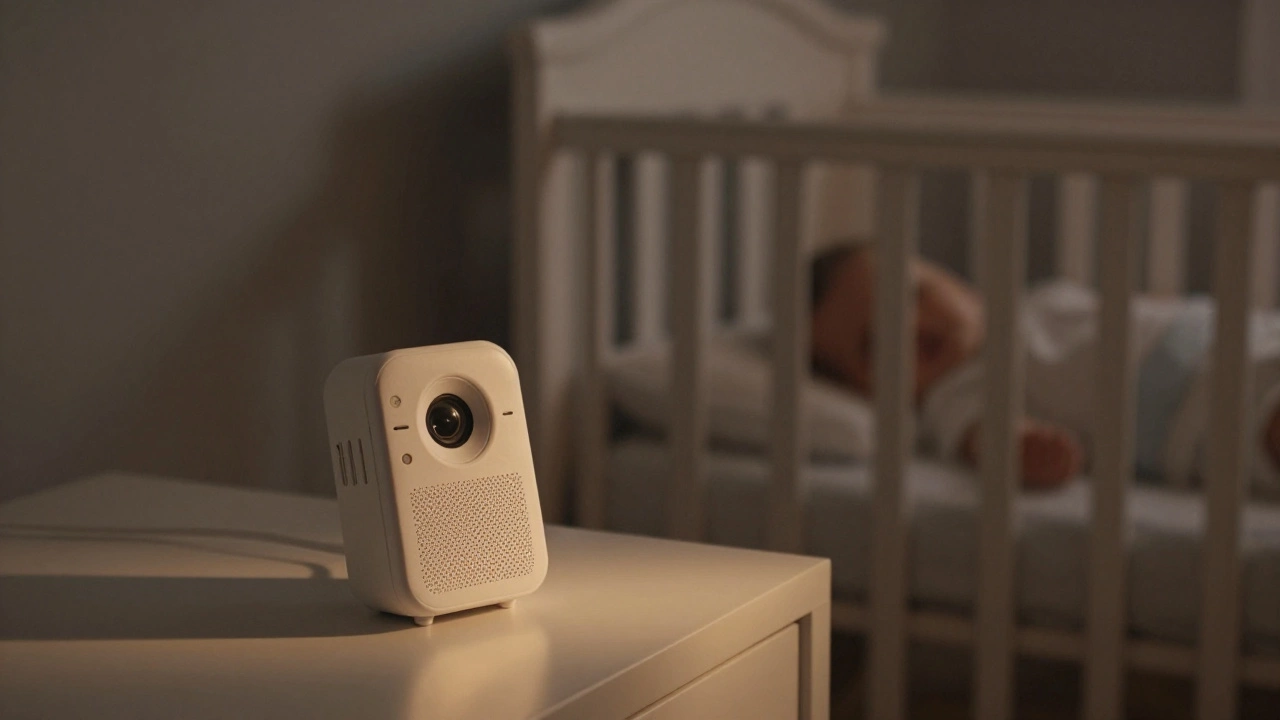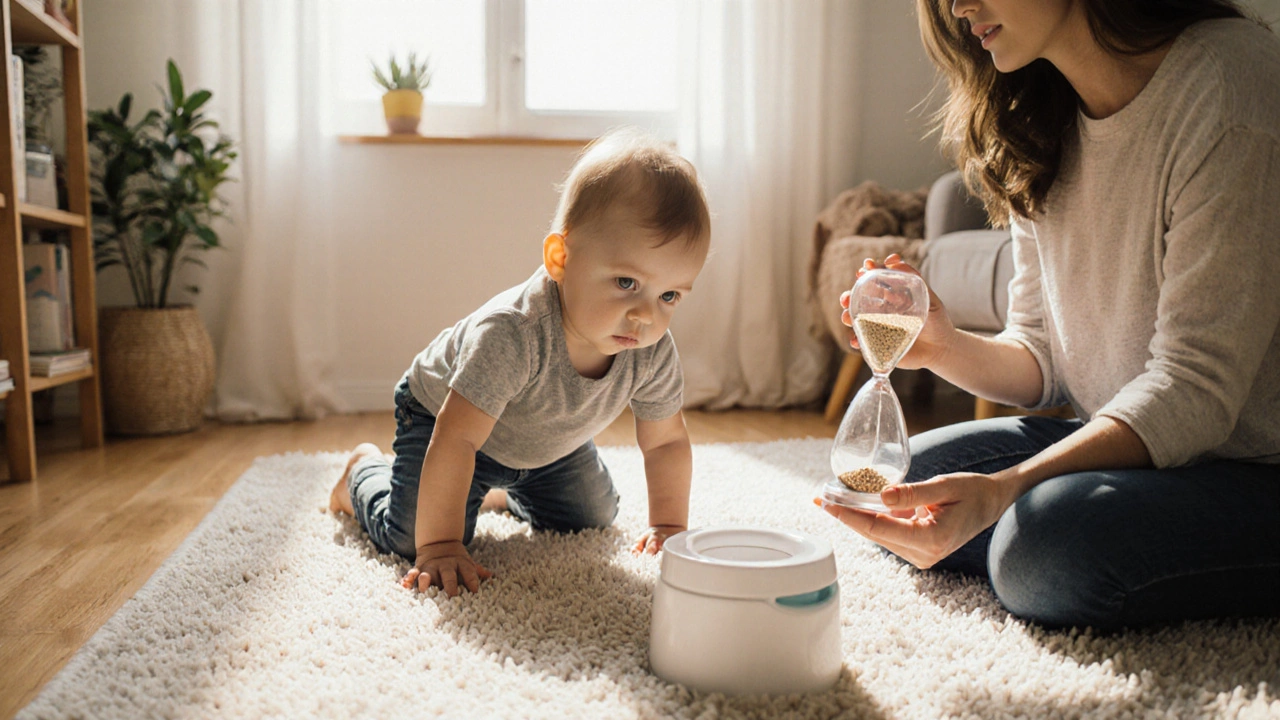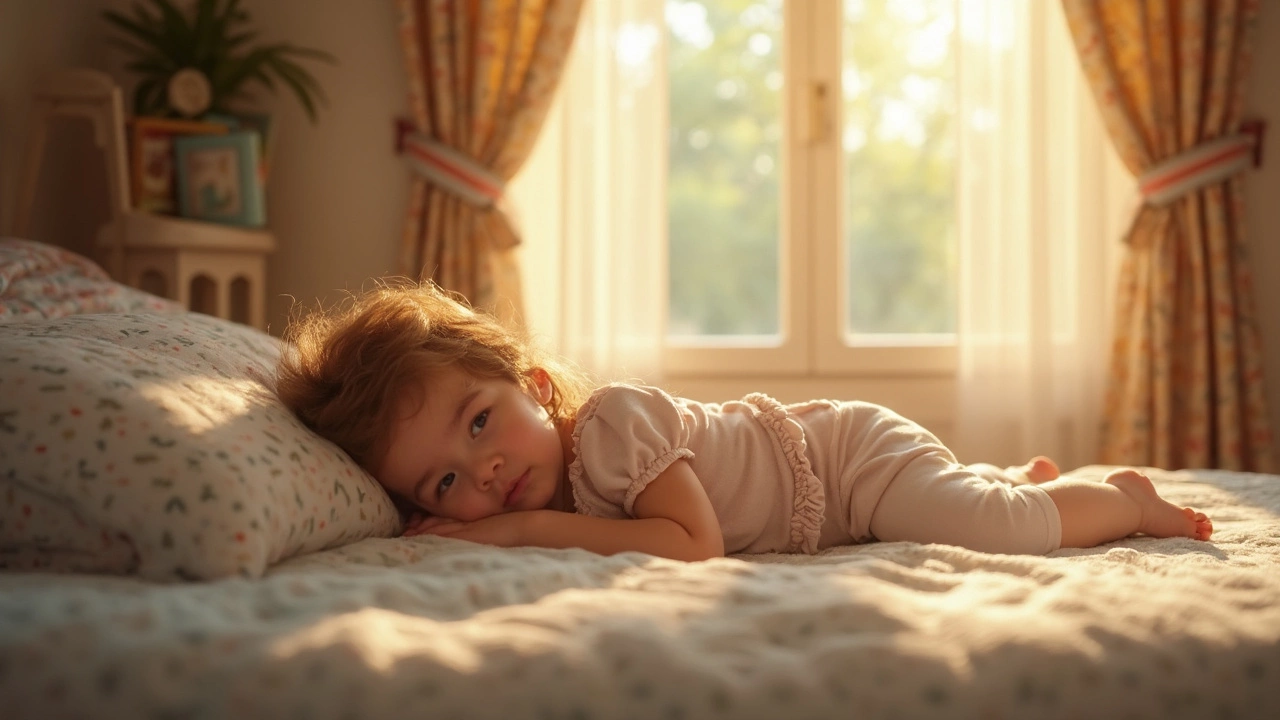What Age Should You Get a Baby Monitor? Essential Tips for New Parents
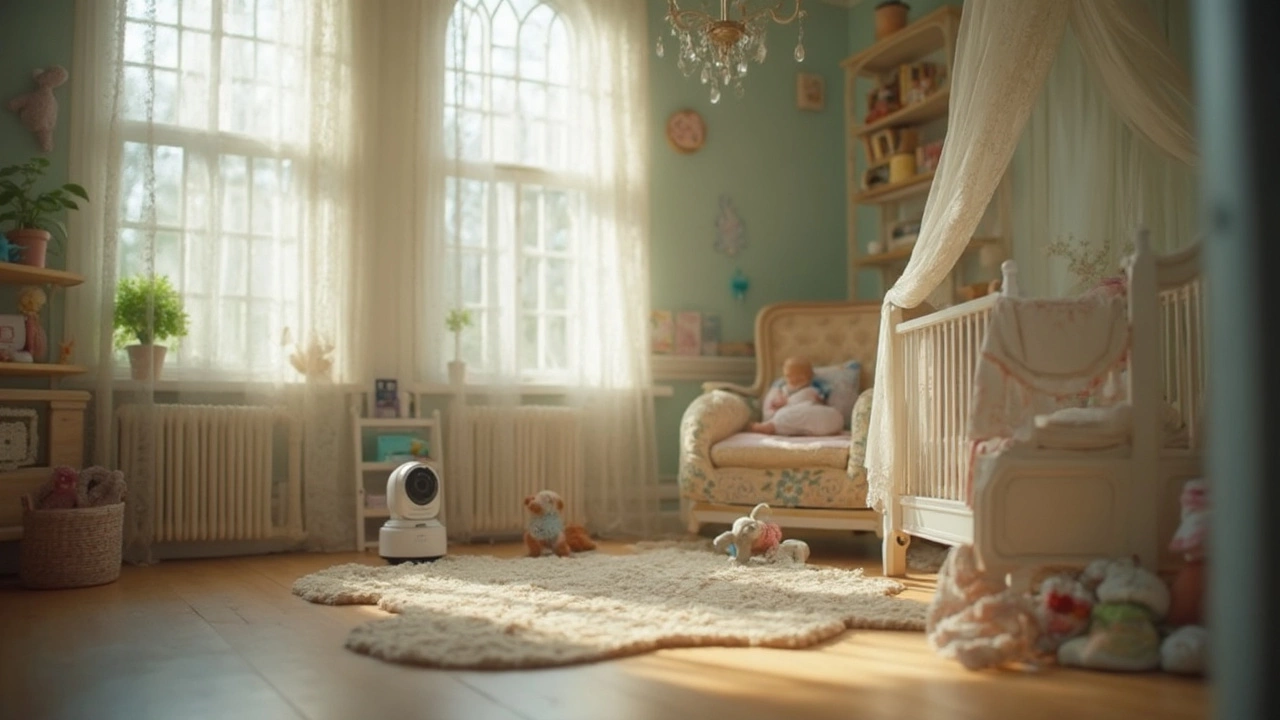
So, you're getting ready for your new bundle of joy, and someone asked if you have a baby monitor yet. That might get you thinking, what age should you actually start using one? Well, there's no hard and fast rule, but let me tell you, it's less about age and more about peace of mind.
Many parents start using a baby monitor as soon as their tiny human arrives home from the hospital. Besides, with a newborn, just keeping tabs on every squeak and rustle becomes a whole new level of important. It’s not just about hearing your baby cry, though. Some monitors offer video options, so you can actually watch your little one dream away. Fancy, right?
Don’t worry if you haven’t got one yet. People before baby monitors managed just fine, but these gadgets do add that extra layer of comfort. Whether you're a first-time parent or it’s your third go-round, a baby monitor lets you step into another room without feeling like you’re missing out on precious moments.
- Why Consider a Baby Monitor?
- When to Start Using a Baby Monitor
- Types of Baby Monitors
- Features to Look For
- Safety Tips and Myths
Why Consider a Baby Monitor?
Alright, let’s chat about why you might really want to get a baby monitor. If you're in that new parent zone, juggling diaper changes with soothing bedtime lullabies, a baby monitor can be your best buddy. This nifty little device is all about giving you more freedom while keeping your kiddo securely under your watchful eye—sort of like having eyes and ears where you aren't physically present.
For starters, having a baby monitor can significantly relieve anxiety. We live in a world where being outside our baby's room is normal, yet, it can be stressful if we don't know what they're up to. Monitoring them while they're napping or playing in another room gives you time and flexibility to tend to laundry, meals, or a bit of 'you-time' without being consumed by worry.
Let’s hear it from the experts! An article by Dr. Linda Folden Palmer, a respected parenting author, shares that "Baby monitors empower parents to respond more promptly to their child's needs, reducing stress both for the parents and the baby." That sounds good, doesn't it?
"Baby monitors empower parents to respond more promptly to their child's needs, reducing stress both for the parents and the baby." – Dr. Linda Folden PalmerBesides, technology in baby monitors has gone through the roof! There are audio ones, video ones, and even those high-tech ones that track your baby’s breathing patterns and sleep cycles. So, it’s kind of like bringing a slice of the future into your nursery today.
Here's a quick breakdown of reasons parents commonly love them:
- Peace of Mind: Relax knowing you can 'see' and 'hear' your baby without hovering over them.
- Improved Response Times: Quicker reaction to your baby’s needs.
- Safety: While not a total substitute for physical checks, they add an extra layer of safety.
- Multi-tasking: Get stuff done around the house while keeping an ear out for any crying or cooing.
- Advanced Features: Some models can even check temperature, play lullabies, or connect to apps on your phone.
In sum, while it's totally feasible to parent without one, many modern parents find that baby monitors allow them to blend a little more freedom into their hectic schedules. They’re pretty much an extra pair of hands—or eyes and ears—when you can't physically be there, letting you breathe a little easier in the wild world of parenting.
When to Start Using a Baby Monitor
Deciding when to start using a baby monitor can sometimes feel as overwhelming as picking the right stroller or car seat, but don't stress too much about it. Generally speaking, many parents opt to start using a monitor right when their baby is born. Bringing home your newborn is thrilling yet nerve-wracking, and having those extra eyes and ears is super helpful.
There isn’t a one-size-fits-all moment to begin using a baby monitor; it really depends on your family's lifestyle and needs. If you’re in a spacious home or if your nursery isn't close to your bedroom, a monitor is nearly essential from day one. On the other hand, in a small apartment, you might not feel the need until your baby starts sleeping in their own room.
A quote from parenting expert Lisa Johnson says it best:
"A baby monitor offers peace of mind for parents, especially during those first few months when you’re adjusting to new routines and sleep schedules."Here are some scenarios when you might consider setting up a baby monitor:
- If your baby sleeps in a separate room from the beginning – essential for peace of mind.
- Once your baby starts napping independently during the day – super handy to see when those nap times sneak up on them.
- Even for toddlers, when you transition them to a big kid bed – helpful for keeping an eye on night-time wanderers.
So, if you're thinking about investing in a monitor, keep in mind these various stages and how each one fits into the development and safety of your child. Even companies enlist different monitors based on the child’s age group, ensuring they meet the practical needs of parents during different growth phases.
Baby Age Monitor Use Newborn Essential for separate sleeping areas 3-6 Months Great for nap monitor and when starting crib naps Toddler Useful for monitoring independent play and sleep transitions Remember, no one knows your family's needs better than you do. Trust your instincts, and you'll know just when the time is right to unbox that monitor.
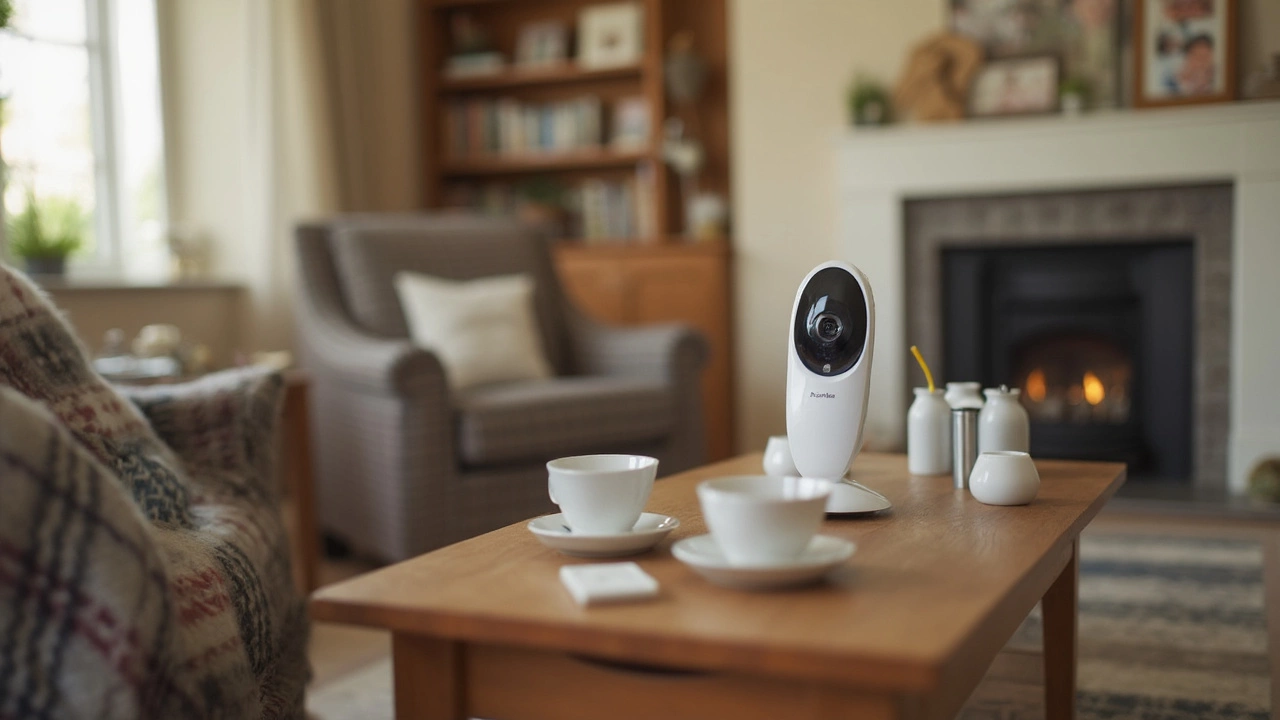
Types of Baby Monitors
Choosing the right baby monitor can feel like sorting through a maze, but breaking it down into types makes it a whole lot easier. So, what's out there? Let's get into the nitty-gritty.
First up, we've got the audio baby monitors. These are your classic, no-fuss option. If all you want is to hear every giggle, sigh, and whimper, this might be your best bet. They're super reliable and are often more budget-friendly than other options.
Next in line are the video baby monitors. These come with a screen so you can peek at your baby without tiptoeing into the room. They've become pretty popular because hey, sometimes you just want to see your little one as they're deep in dreamland. Some models even let you move the camera around remotely. Technology, am I right?
Then we have the WIFI monitors. These let you stream audio and video straight to your smartphone or tablet. Perfect for parents who might want to check in from, say, the office or a night out. However, they do rely on a strong internet connection, so that’s something to think about.
Don't forget the breathing and movement monitors. They're mostly for parents looking to monitor more than just sight and sound. These devices can track your baby's movements and breathing patterns, giving you a heads-up if something seems off.
Lastly, you've got the wearable monitors. Think of these as tiny smart devices for your baby—things like socks or onesies that monitor vital signs. They're the James Bond of baby world technology but often come with a higher price tag.
So, there you have it. Each type comes with its own perks and quirks. The key is figuring out what features matter most to you and your family's lifestyle. A little extra research, and you'll find your perfect match in the world of baby monitors.
Features to Look For
When picking out a baby monitor, you want to make sure you're getting your money's worth, right? Here are some features that can make a big difference in the day-to-day hustle of parenting.
Audio vs. Video: First off, decide if you want just audio or if seeing your baby matters to you. While audio monitors are budget-friendly, video monitors give you an extra pair of eyes when you're in the other room.
Two-Way Audio: Two-way communication is a cool feature because sometimes tiny tots just need to hear your voice to calm down. It's like an intercom system, and it’s handy for soothing late-night cries.
Range: If you have a larger home or plan on hanging out in the yard while baby naps, check the range. Most monitors cover a decent distance, but double-check to avoid any surprises.
Battery Life: A monitor with long battery life saves you from constantly charging. Some can last days without needing a plugin. It's those little conveniences that can save a bit of sanity.
Temperature Sensors: Ever worry if your baby's room is too warm or chilly? Monitors with temperature sensors keep you informed so your baby stays comfy.
Night Vision: Night vision is a must-have for video monitors. Darkness should never be a barrier to checking in on your sleeping cutie.
You may not need all the bells and whistles, but a few key features can definitely make life easier for you and your partner. At the end of the day, it’s about finding that sweet spot between your needs and what works for your lifestyle.
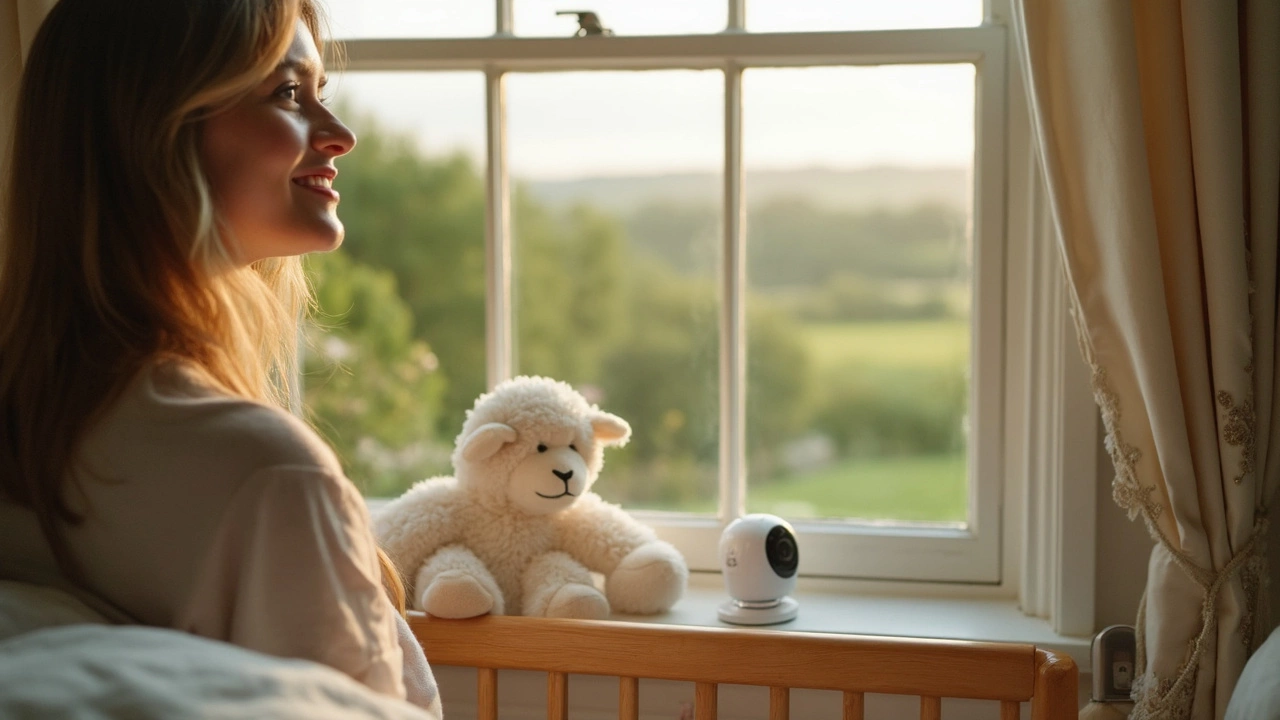
Safety Tips and Myths
Let's talk about keeping things safe when it comes to baby monitors. It's all about using them wisely and knowing what's what. You know, even though these gadgets are here to help, it's key to avoid falling into some common myths.
First off, make sure the monitor isn't too close to the crib. To avoid any risk of strangulation, keep cords at least three feet away from where your little one is sleeping. Wireless monitors can reduce this risk, but it's always good to double-check.
Ever heard the myth that more features in a monitor mean more distractions? Some folks think that having too many alerts will stress you out more than help you. Sure, it might feel like you're in NASA with all those buttons and screens, but customizable alerts let you find the balance that works for you. Trust me, adjusting those settings can help you sleep peacefully!
Oh, and it's a common myth that baby monitors are a substitute for parental supervision. Well, they're not! These tools are an extension of your eyes and ears, not a replacement. Always be proactive and check on your kiddo regularly.
Lastly, let’s quash the idea that monitors are easy targets for hackers. Using a secure Wi-Fi network with a strong password can keep things locked down. Plus, regularly updating the firmware on your monitor adds an extra layer of security.
Remember, when used correctly, baby monitors are a great way to keep an eye—and ear—on what matters most without losing sleep over myths. Prioritize safety features, stay informed, and you'll be good to go!
